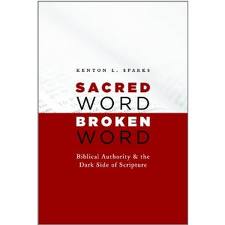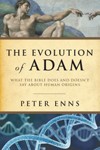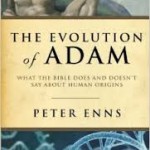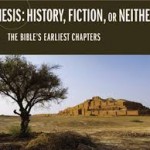 After a couple of weeks of Philadelphia heat, getting caught up on some late projects, and being held in the grip of the drama that is synchronized diving, I am back to posting on Kent Sparks’s provocative and thoughtful book Sacred Word, Broken Word: Biblical Authority and the Dark Side of Scripture
After a couple of weeks of Philadelphia heat, getting caught up on some late projects, and being held in the grip of the drama that is synchronized diving, I am back to posting on Kent Sparks’s provocative and thoughtful book Sacred Word, Broken Word: Biblical Authority and the Dark Side of Scripture. (You can find my first post here and follow the thread.)
In chapter nine, Sparks talks about what it means to read “sacred Scripture.”
Not the Bible. Anyone can read the Bible–academics, atheists, Red Sox fans. But to read the Bible as Holy Scripture,
is to embrace it as authoritative discourse from God, as a book in which God directs us toward abundant life in Jesus Christ (p. 89).
I’ll bet some of you didn’t see that coming from Sparks. You might think there is no way whatsoever that he can mean this after all he’s been saying about the Bible being broken and having errors in it. Well, if you can’t see how those two hold together, don’t just assume they can’t be and Sparks is off his rocker. Read the book and give it a try.
can mean this after all he’s been saying about the Bible being broken and having errors in it. Well, if you can’t see how those two hold together, don’t just assume they can’t be and Sparks is off his rocker. Read the book and give it a try.
Anyway, Sparks aligns himself here with an emerging contemporary movement that is sometimes called “theological interpretation,” “theological hermeneutics,” or “theological exegesis.” This movement has both evangelical and mainline advocates, and is a deliberate giant step away from an exclusively academic and critical reading of the Bible as the final arbiter or meaning. Instead, this movement “is characterized by its creedal [i.e., ancient creedal, like the Nicene Creed], ecumenical, biblical, and theological character” (p. 89).
Another way of putting it is that readers of Holy Scripture are engaged in a theological conversation not just with the text in front of us as we try to make sense of it, but with the biblical witness as whole, church tradition, and the theological needs of the church today. This approach developed as a corrective both to mainline critical scholarship that has made the Bible beholden to modernist academic standards, and myopic evangelicalism that has forgotten the history of Christian thought with its “me and my Bible” approach to spirituality.
This is a great idea, and Sparks embraces this movement in general. But he also quickly adds a caveat. He is troubled–as am I–by a tendency in practice to pay little attention to Scripture as an ancient text, i.e., to set aside the historial study of Scripture (i.e., what biblical scholars do) as that which distorts theology rather than enhancing and informing it.
 I’ve heard that drum beat a lot, especially in recent months with respect to my book The Evolution of Adam
I’ve heard that drum beat a lot, especially in recent months with respect to my book The Evolution of Adam. “Biblical studies and science can’t tell us how to understand the story of Adam and Eve. We need to listen first and foremost to our church tradition and Christian theology. If science and biblical studies conflict with the ‘the church,’ we need to side with the latter.”
What Sparks is calling for here is an approach to theological interpretation that brings historically oriented biblical studies into the conversation, not as that unwelcomed neighbor who shows up at the barbecue–the awkward guy you had to invite but hoped wouldn’t show–but as the guy who brings a case of the really good beer and a pack of Knockwurst. I couldn’t agree more.
For the rest of the chapter, Sparks spells out more of the importance for reading Scripture as “ancient human discourse,” rather than functionally marginalizing that dimension of Scripture as less important than Scripture as divine discourse. To put this in my own words, Scripture as divine discourse is, in God’s mysterious purposes, mediated through ancient human discourse. You can’t have one without the other, for what God has joined together, let no theologian rend asunder.
Although digging into the complexities of Scripture as authored by real people in time and space is neither easy nor an exact science, no responsible “theological” reading of Scripture can marginalize, intentionally or unintentionally, how God has chosen to communicate.
The challenge as I see it is how to keep these diverse conversation partners at the same barbecue without getting into a drunken food fight. After all, it is true that sometimes the historical study of Scripture can challenge creedal formulations or church traditions. What do you do then? Typically, at least in evangelical circles, “Bible as ancient discourse people” are either asked to leave the barbecue or made to promise to behave themselves.
The real way forward is to work on some sort of true “hermeneutical synthesis,” but that is very hard work, and for many a risky proposition, personally and professionally.














